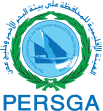Emergency Mutual Aid Center for Red Sea and Gulf of Aden EMARSGA website.
Our center aids and support mutual efforts during marine pollution incidents in the region with a bonded relations and teams from member states and international organizations. You will find valuable information and resources related to marine pollution response and recovery. Our website includes the following key sections:
1. Home
An overview of the center’s mission, goals, and services. This section highlights the importance of mutual aid and collaboration in addressing marine pollution emergencies. ( 3 subdirectories)
- Overview of the center mission and goals.
- Emphasis on the importance of mutual aid and collaboration in marine pollution, oil spills and noxious substances emergencies.
- Highlights of the center’s services and support.
2. About Us
Detailed information about the center, including its establishment, structure, and partners. It highlights the expertise and capabilities of the center’s staff and provides an overview of the resources available.
- Background information on the center’s establishment and purpose.
- Description of the center’s organizational structure and key personnel PERSGA / EMARSGA.
- Overview of partner organizations and agencies involved in the center’s operations. (Regional Oil Spill Contingency Plan (SAFER) 2023 as a guide).
- Highlighting the expertise, experience, and capabilities of the center’s staff including PERSGA experts.
3. Marine Pollution
This section provides comprehensive information about marine pollution, oil spills and noxious substances, including their causes, types, and potential impacts on the environment, marine life, and human health. It emphasizes the need for prompt response and effective coordination.
- Explanation of marine pollution and its causes, including oil spills, chemical spills, noxious substances, and debris.
- Description of the potential environmental, marine life, and human health impacts of marine pollution.
- Examples and case studies illustrating the severity and consequences of marine pollution incidents.
- Importance of proactive measures and preparedness to mitigate and prevent marine pollution.
4. Emergency Response:
A dedicated section outlining the center’s emergency response procedures. It describes the actions to be taken in case of a marine pollution incident, including reporting mechanisms, mobilization of resources, and coordination with member states relevant authorities.
- Guide outlining the center’s emergency response procedures. (ROSCP (SAFER) 2023 as a guide).
- Clear nstructions on reporting marine pollution incidents and how to contact the center POLREP, SITREP and noxious substances (under construction and modification)
- Information on regional resources mobilization and deployment during emergency situations including Considerations and recommendations in offering and requesting assistance.
- Considerations and recommendations in offering and requesting assistance
- Establishing and Staffing the Incident Control Room and Facilities.
- Collecting Information.
- Oil Spill Trajectory Modelling and Spill Surveillance.
- Identifying resources immediately at risk, informing parties.
- Pollution Response Strategies Collaboration and coordination with relevant authorities, agencies, and stakeholders.
- Briefing on incident command systems and incident management frameworks
5. Mutual Aid Network
Information about the center’s mutual aid network, comprising regional organizations, agencies, and stakeholders involved in marine pollution response.
- Explanation of the mutual aid network’s purpose and benefits.
- List of participating regional liaisons, other centers, and agencies
- Overview of the support and resources available through the mutual aid network.
- Considerations and recommendations in offering and requesting assistance
6. Resources
A repository of resources related to marine pollution response and emergency management. This includes guidelines, best practices, training materials, and technical documents that can assist in marine pollution incidents. (Downloads can be direct or for contact detailed list through login and password).
- Downloadable guidelines, best practices, contingency plans, and standard operating procedures related to marine pollution response.
- Training materials and resources for regional parties.
- Technical documents, research papers, and scientific studies pertaining to marine pollution and its management.
- Links to relevant external resources, such as government agencies, international organizations, and research institutions. (As per member states approval).
7. News and Updates
Regularly updated news articles, press releases, and announcements related to marine pollution incidents, response efforts, and relevant developments. This section keeps visitors informed about ongoing activities and highlights success stories. This section will be dynamic and accelerates the member states and relevant parties to be connected to EMARSGA website.
- Regularly updated news articles, press releases, and announcements related to marine pollution incidents and response efforts.
- Highlights of successful response operations and lessons learned from past incidents.
- Upcoming events, conferences, and training programs related to marine pollution response.
- Latest developments in technology, policies, and regulations related to marine pollution management.(will keep EMARSGA updated with the technologies
8. Contact Us
Contact information for the center, including phone numbers, email addresses, and a contact form.
- Contact information for the center, including phone numbers, email addresses, and physical address.
- Online contact form for general inquiries, assistance requests, or incident reporting.
- Operating hours and any specific instructions for contacting the center during emergencies.







